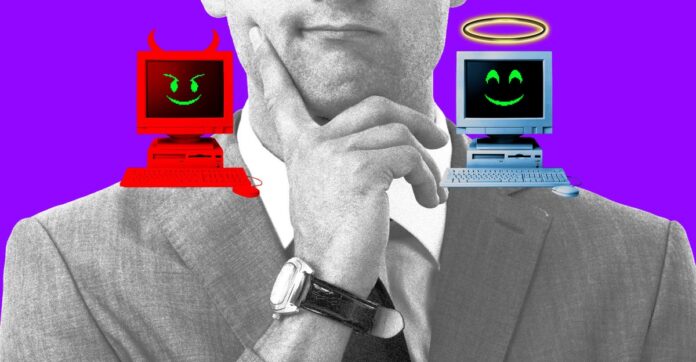The AI Optimism Gap
The field of artificial intelligence (AI) is rapidly advancing, with experts feeling hopeful about its future. However, a recent report from Pew Research Center reveals a significant divide between the optimism of AI experts and the anxiety of the general public. This gap in perception is a cause for concern, as it highlights the need for better understanding and regulation of AI.
Expert vs. Public Opinion
Roughly three-quarters of AI experts believe that the technology will benefit them personally, while only a quarter of the public shares the same sentiment. Moreover, experts think AI will improve jobs, whereas the public is concerned that it will take them away. The lack of trust in AI is further exacerbated by the fact that more than half of both groups want more control over how AI is used in their lives, and majorities do not trust the government or private companies to regulate it responsibly.
Regulatory Challenges
The US government has struggled to effectively regulate technology, and this is evident in the way Congress handles tech-related issues. The lack of understanding and expertise among lawmakers is a significant concern, as it hinders their ability to make informed decisions about AI regulation. As one academic expert noted, "It seems like when you look at these … congressional hearings, they don’t understand it at all. I don’t know that I have faith that they would be able to bring on enough experts to understand it enough to regulate it, but I think it’s very important."
The Future of Work
The public’s skepticism about government AI regulation is fueled by the ambitious claims of tech leaders about the future potential of AI. For instance, OpenAI CEO Sam Altman expects AI agents to "join the workforce" and significantly impact company output by 2025. However, few Americans believe they have any agency in the AI-driven future, with nearly 60% of US adults saying they have little or no control over whether AI is used in their lives.
Demographic Divides
There are significant demographic divides in AI perception, with male AI experts being more likely to feel optimistic and personally excited about AI than their female counterparts. Additionally, both experts and the public agree that AI design reflects the perspectives of white men more than women and Black or Hispanic communities. This lack of representation is not only a problem in terms of who builds the models but also in how people experience the technology.
Gen Z and AI
Gen Z is already living with AI, with 79% of respondents in a separate study reporting that they use AI tools like ChatGPT or Copilot. However, this does not mean they trust it, with 41% saying AI makes them feel anxious and only 36% saying it makes them feel excited. As Zach Hrynowski, author of the Gallup report, noted, "Gen Z, they don’t trust the government, they don’t trust big tech companies, they don’t trust the news." Gen Z recognizes that AI will shape their future jobs and learning, but they are wary of its effects, with nearly half thinking AI will harm their ability to think critically.
Institutional Failures
Schools and workplaces are not doing enough to help Gen Z navigate the AI landscape. Most Gen Z students say their schools lack clear AI policies, and over half of Gen Z workers report the same about their employers. However, when institutions do have clear AI rules, young people are more likely to use the tools, trust them, and feel prepared for the future.
Conclusion
The rapid advancement of AI is not being matched by a corresponding increase in trust. The systems are getting smarter, but the people are skeptical, especially the ones who will have to live with it the longest. As Hrynowski said, "They haven’t gotten to a point where they feel like the benefits outweigh the risks." It is essential to address these concerns and work towards creating a future where the benefits of AI are shared by all, and its risks are mitigated.

